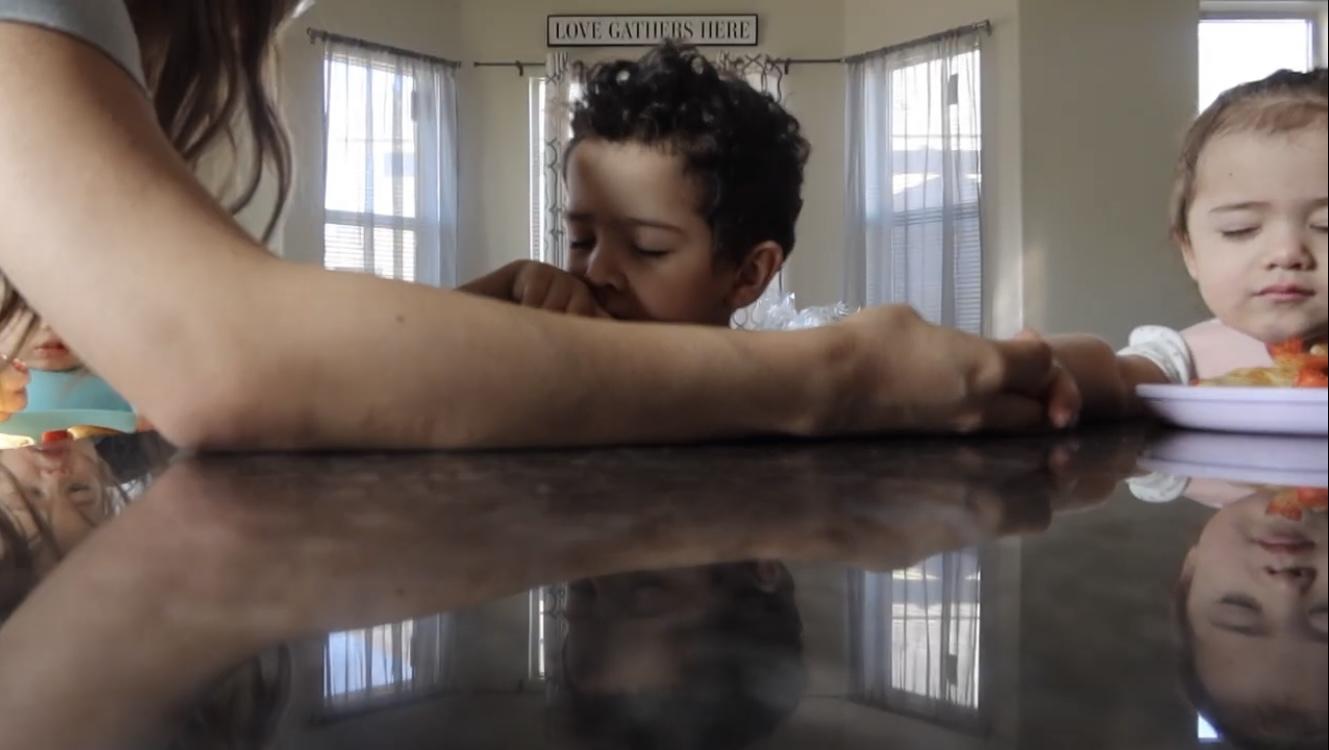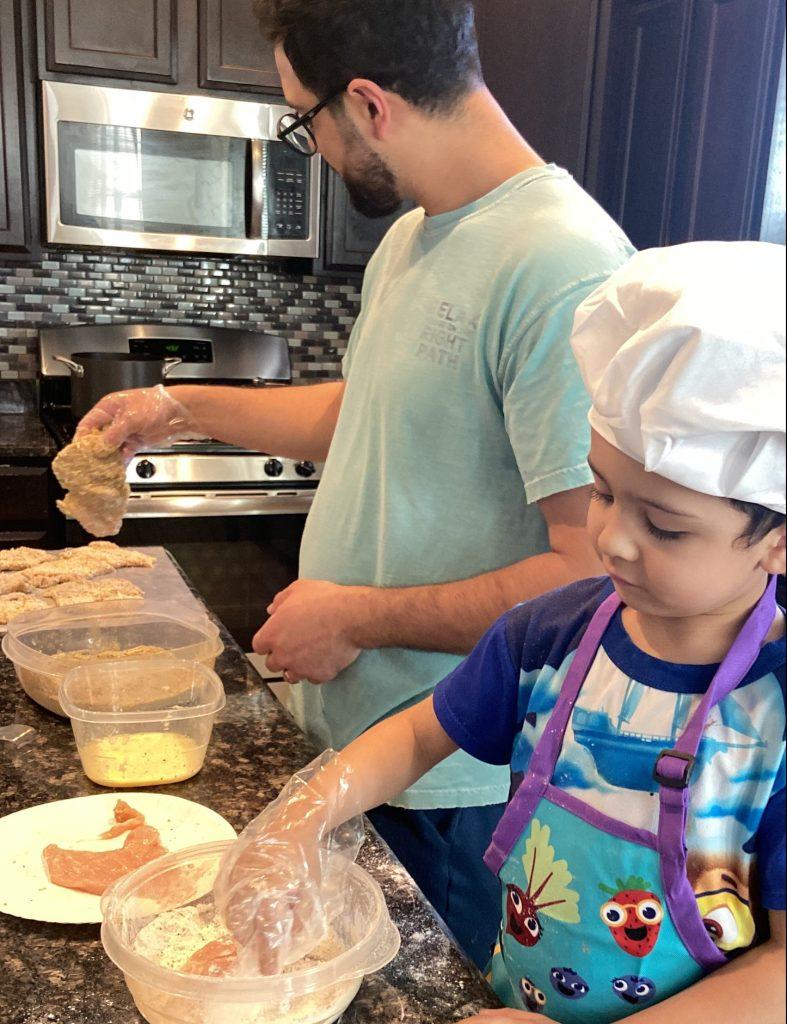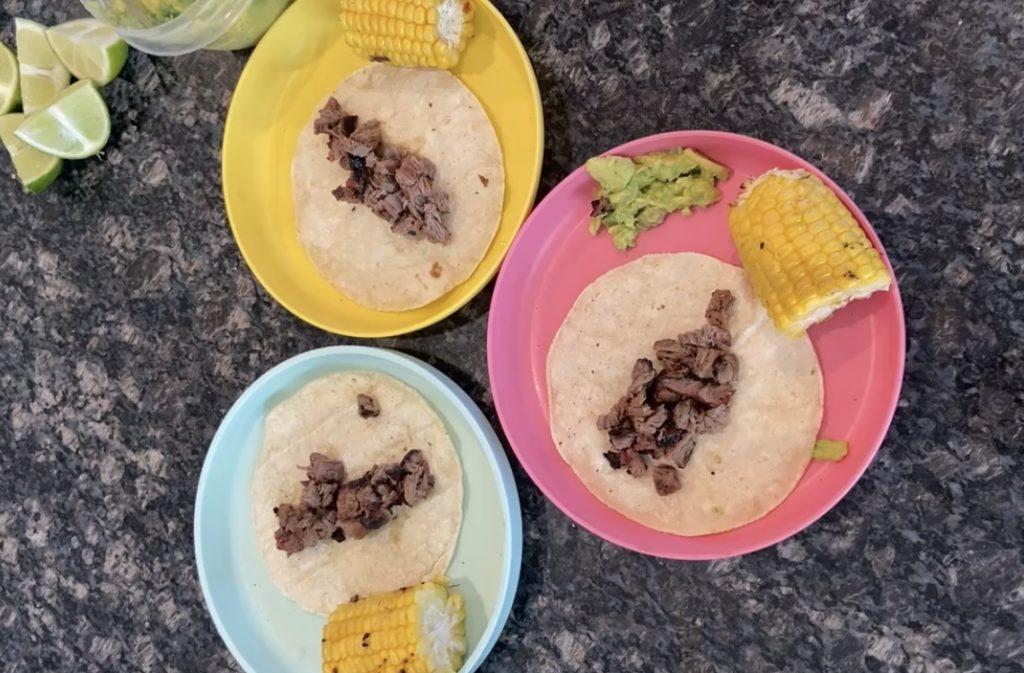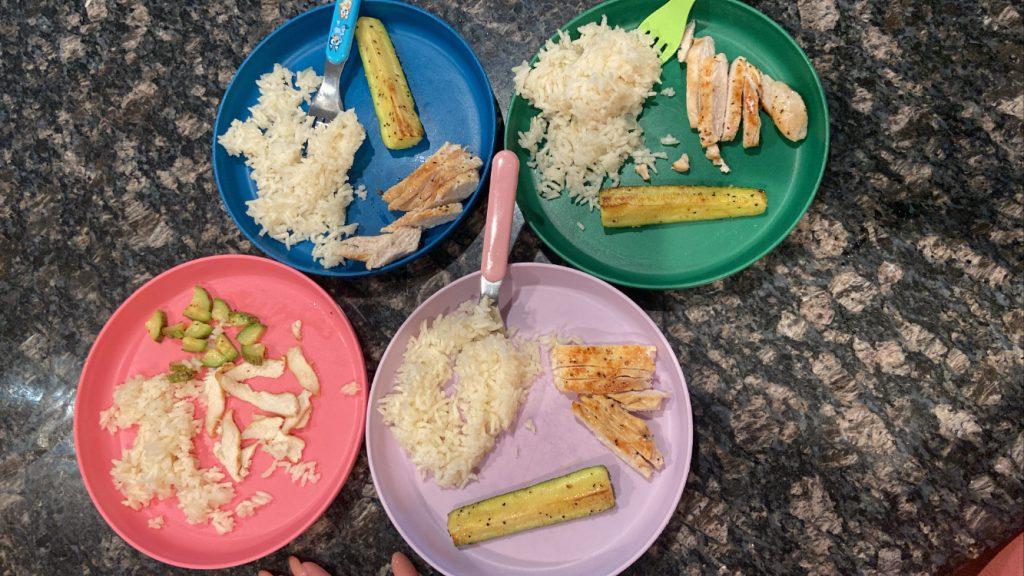
One of my biggest struggles as a mom is feeding my littles. Who knew it would be so tricky raising a healthy eater? So much “mom guilt” is tied up in how we feed our children (as if there wasn’t enough of that going around, right?). Are they eating too much? Are they eating enough? Is what I’m feeding them nutritious? Why are some of them picky eaters?
As a mama of four, I have learned that when it comes to children, there is no such thing as a “one-size-fits-all” approach. I have tried many strategies to help this shift as they went from baby to toddler to preschooler.
» » » » » » » » » RELATED READ: How I’m Teaching Food Positivity to My Kids « « « « « « « « «
Raising healthy eaters has been one of my goals as a mom. Below are do’s and don’ts that have helped me accomplish this goal so far.
DO
1. Do eat a variety of foods during pregnancy
Research shows that what a woman eats during pregnancy nourishes her baby in the womb and may shape food preferences later in life.

My suggestion? Dig in, mama! Enjoy all sorts of foods during pregnancy. This may be hard to accomplish since those pregnancy hormones kick in and we have cravings, but it will give you a kickstart to raising a healthy eater.
2. Do introduce different flavors to your baby
One of the best ways to develop your baby’s taste and texture palettes is to offer them variety during meal times. Offer new foods and flavor combinations to expose your little one to as many flavors as possible.

What worked for our family (after trial and error with baby #1 and baby #2) was Baby-Led Weaning. If you choose to try purees, though, try introducing different flavors of vegetables and fruits.
3. Do make mealtime an important part of the day
Sitting together, engaging in conversation, and enjoying the time while eating gives children a sense of importance and something to look forward to. In our family of six, every mealtime is a time that is cherished. The whole family sits together, the TV is off, ALL electronics are put away (including ours), and we pray together before we eat.

Meal time is a time of bonding for our family. My parents passed this down to me as a child, an essential part of my Hispanic culture that I love. Many lasting memories that I remember as a child involved breaking bread together. It is something that I strive to pass down to my children and every future generation that comes, too.
4. Do get your children involved
Getting your children involved at meal times makes them feel a sense of pride for the part they played. Letting your children help with preparing the food, setting the table, and cleaning up is important.

Yes, it will take some time to get used to in the beginning, and cooking may take longer as well, but this practice will help your child enjoy the food they are proud to have prepared. It’s another step into becoming a healthy eater. Now, I’m not saying let them help you EVERY single time, but let them at least a couple times a week for one of the meals or snacks.
DON’T
1. Don’t pressure your child to eat
“If you eat your vegetables, I will give you _________.”
“If you don’t eat all your food, you will not be able to _________.”
“Clean plates are awesome!”
I am guilty of using these pressure tactics in the past, and they did not help me or my baby develop healthy eating habits. Pressure will make your child(ren) eat worse, not better, and in the long run, it will make them vulnerable to developing eating disorders as adults.
But how do you get them to eat now? Know what is and what isn’t under your control. Your job is to feed, and their job is to eat.
No pressure on both sides. Put the plate before them, and let the rest of the meal time flow.
2. Don’t offer a different food for yourself (or your child) at meal times
This one is hard! I remember some meal times with baby #1 consisted of making his comfort foods while my husband and I made something different for us. This set us up for failure, and it was hard for our son even to want to try new foods later on.


And it goes both ways. For example, sometimes, because we are adults, we make our children eat veggies because “they are good for them,” but we rarely eat them ourselves. We must become good role models for our children by showing them we eat and try all sorts of new foods. This teaches them that foods are something to enjoy and not fear. This is a crucial step to raising a healthy eater.
3. Don’t use screen time during meals
Excessive screen time is harmful as it is, but even more so during meals. Research has found that screen time during meal times is linked with low fruit and vegetable consumption and a high intake of unhealthy snacks. Screen time also stops children from being aware of their food consumption, ignoring bodily cues that tell them they are full.
It starts with us. Mama, put the phone away, turn the TV off, and enjoy this moment with your children. Interact with them while you break bread together. Your phone/iPad/TV will look the same in five years . . . your children will not. Don’t let a screen take this moment away from you.
4. Don’t lose patience
I’ve been there too, mama. It’s easy to give in, but there are better choices. Don’t give up on your child(ren) or on yourself.
Remember, it’s okay if your child refuses to eat a meal or snack. You can always try again at the next planned meal/snack and offer healthy foods with it. It’s also okay if your child likes to eat the same foods for a few days. As long as you keep offering a variety, they will eventually try what is offered. It is also normal behavior if your child likes one food and refuses it the next day.
Raising a healthy eater takes time and consistency.
What is important is that you keep trying to feed your littles and keep up the structure. Ultimately, you decide what and when your children eat, but your children will choose whether or not to eat what you offer them and which foods they do try.
Remember that mamas, children, and families are not one-size-fits-all. These do’s and don’ts are what worked for my family, but at the end of the day, mama, you are the one that chooses what works for your family. Cut yourself some slack, and know that you are doing your best.
Look at you educating yourself on such an important subject! This itself should let you know that you are already doing AMAZING. Pat yourself on the back, mama. You got this! I believe in you!
The opinions expressed in this post are those of the author. They do not necessarily reflect the official policy or position of El Paso Mom, its executive team, other contributors to the site, its sponsors or partners, or any organizations the aforementioned might be affiliated with.










